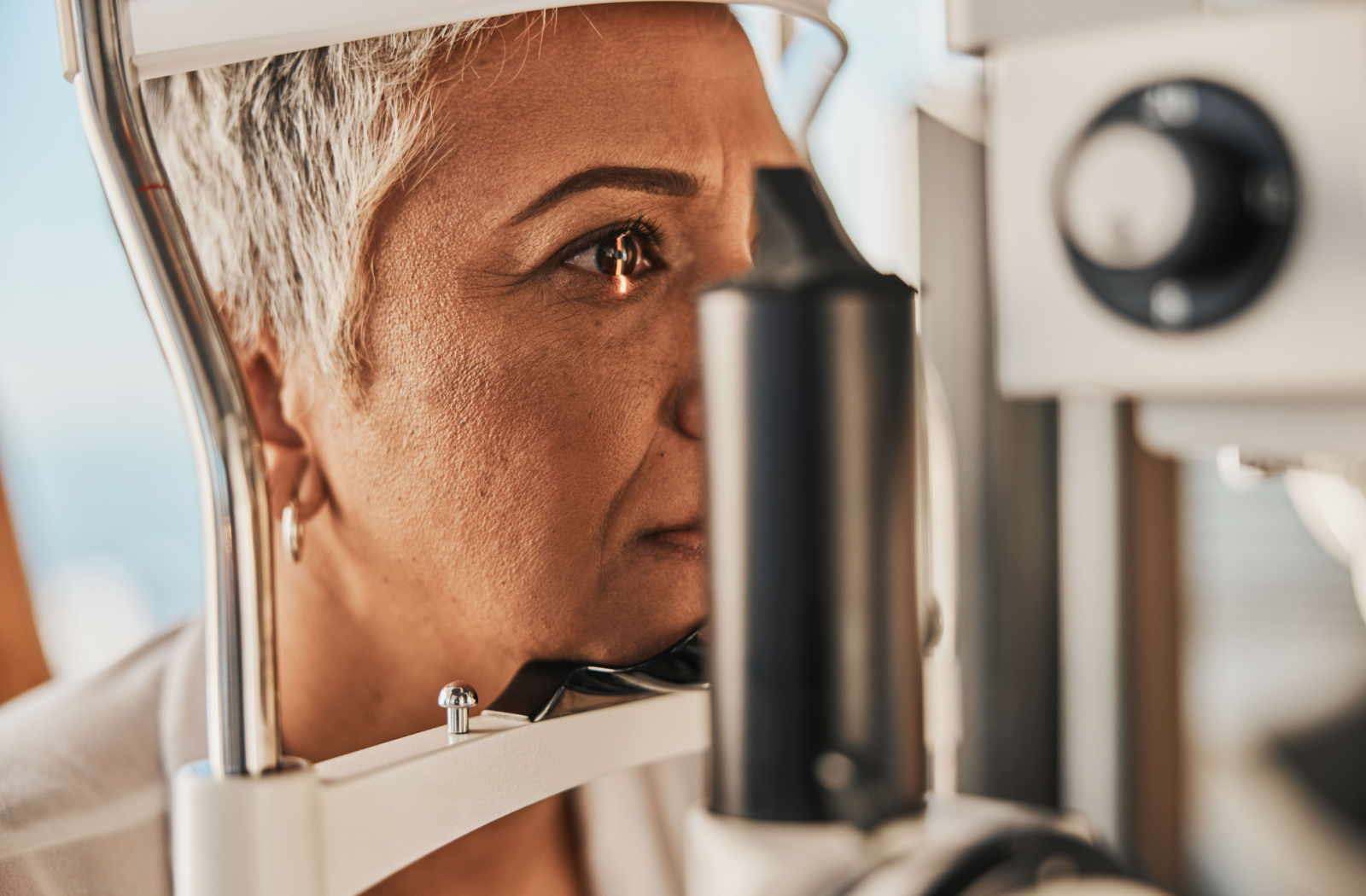Cataracts can be a concern for many people as they get older. When your risk for cataracts increases because of age, you may also start to wonder about the other possible causes of cataracts and how using digital devices may affect your eyes.
Fortunately, computer screens are not a recognized cause of cataracts. While computer screens emit a small amount of UV light, the UV radiation they emit is not enough to cause cataracts. However, if you spend a lot of time in front of a computer screen, you may experience digital eye strain, which can cause symptoms like tired eyes, headaches, and neck pain.
What Is a Cataract?
Cataracts are a common age-related eye condition that can cause a clouding of your eye’s natural lens. Although cataracts are commonly associated with aging, they can also be caused by exposure to ultraviolet light, certain medications, and trauma or injuries that affect your eyes.
The symptoms of cataracts include foggy vision, trouble seeing at night, and halos around lights. During their early stages, cataracts may be treated with adjustments to your vision prescription or nearby lighting, but eventually, surgery may be necessary to replace your eye’s cloudy lens.
Is Computer Use a Risk Factor for Cataracts?
Lifetime, long-term UV exposure may be a risk for cataract development, but computer screens do not emit enough UV radiation to contribute to the development of cataracts.
However, prolonged screen use can lead to digital eye strain. Some of the strategies you can use to avoid eye strain include taking regular breaks while using a computer screen, adjusting your screen’s brightness, and adjusting nearby lighting to avoid glares on your screen.
What Are the Risk Factors for Cataracts?
Some of the risk factors that can contribute to cataract development include:
- Age: As we age, our eyes may be more likely to become damaged by environmental factors such as UV radiation or chemicals, which can make us more prone to developing cataracts.
- Injury or surgery: Previous eye injuries, trauma, and certain types of surgeries can increase your risk of cataracts.
- Family medical history: If a family member has had cataracts, you may be more likely to develop them as well.
- UV radiation: Prolonged exposure to UV rays can damage the lens of the eye and increase your risk for cataracts.
- Diabetes: Diabetes can have a number of negative effects on your eyes, including an increased risk of developing cataracts.
- Smoking: Smoking has been linked to a higher risk of developing cataracts.
How Can You Reduce Your Risk of Cataracts?
To reduce your risk of developing cataracts and other eye problems, here are some important tips to keep in mind:
Use UV radiation protection: Protect your eyes from harmful UV radiation by wearing sunglasses whenever you are outdoors, even on cloudy days. UV protection can help prevent damage to the lens of your eye and decrease your risk of cataracts.
Eat a balanced diet: Eat a balanced diet that includes plenty of fruits and vegetables. Nutrients like vitamins C and E can help maintain your eye health and reduce your risk of cataracts.
Avoid smoking: If you smoke, quitting smoking is crucial for protecting your eyes. Smoking has been linked to an increased risk of cataracts, among other eye diseases. Support and resources to help quit smoking are often available if needed.
Get regular eye checkups: You should always schedule regular eye exams, especially if you are over the age of 50. Comprehensive eye exams help detect cataracts and other eye conditions early on, allowing for timely treatment.
Follow your doctor’s recommendations: If you already have cataracts, it’s important to follow your doctor’s recommendations regarding treatment options and lifestyle changes. We can guide you on managing and living with cataracts and help you determine your potential need for cataract surgery.
Without treatment, cataracts can continue to get worse and may cause vision loss. Getting an early diagnosis and ongoing support from an eye doctor can help preserve your vision.

Protect Your Vision with Eye Care Plus
While there is no definitive proof that computer screens cause cataracts, there are certain risk factors that can increase the likelihood of developing them. To reduce your risk of cataracts, it is important to protect your eyes and schedule regular eye exams.
At Eye Care Plus, we’re dedicated to helping you protect your vision. That’s why we offer a range of eye care services to help you detect and manage cataracts. We can provide comprehensive eye exams and use modern diagnostic techniques to detect cataracts early and monitor your vision health over time. Book an appointment with us today to learn more about your personal risk for cataracts.



